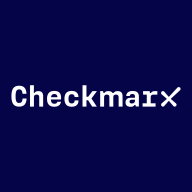

Checkmarx One and SonarQube compete in the realm of application security and code quality management. Checkmarx One seems to have the upper hand in providing comprehensive security solutions, while SonarQube excels in code quality assurance.
Features: Checkmarx One provides a wide range of security services, including code scanning for vulnerabilities, integration with various repositories, and support for numerous languages. Incremental scanning and customizable rules are also key features. SonarQube offers robust code quality management, covering multiple programming languages and providing insights into code duplication, technical debt, and development analytics.
Room for Improvement: Checkmarx One needs to improve in minimizing false positives, enhancing its dynamic vulnerability detection, and refining its user interface. Expanding language support and improving documentation are also noted areas for improvement. SonarQube could enhance its security scanning capabilities, provide better support for new programming frameworks, and improve its reporting and user interface for an enhanced user experience.
Ease of Deployment and Customer Service: Both Checkmarx One and SonarQube offer flexible deployment options, including private and public cloud, hybrid cloud, and on-premises environments. Checkmarx One provides strong customer support with quick response times, though more proactive feedback is desired. SonarQube’s support is generally regarded as good, though the depth of engagement varies per user reviews.
Pricing and ROI: Checkmarx One positions itself as a premium solution with licensing options that may seem costly but are tailored to deliver secure applications efficiently. It offers several licensing models to suit different business needs. SonarQube, particularly with its open-source community edition, offers a cost-effective option, although its commercial plugins and features may require additional investment. While Checkmarx One focuses on enhancing security postures, SonarQube stands out in providing cost-effective code quality assurance, supported by a range of free tools that improve ROI.
Overall, between the fast scanning, automation, automatic reporting, and easy detection, it has reduced manual effort enough that we did not need an extra reviewer, even as our codebase or team size grew.
Based on my interactions with the clients, I can tell that there is a return on investment because if something is not profitable and it's not helping to save costs or vulnerabilities, clients wouldn't come back to renew their license year after year.
It is easily integrable with the CI/CD pipeline and supports multiple projects with its extensive plugin options.
I have seen a return on the investment from SonarQube Server (formerly SonarQube) because the value it adds relates to static code analysis and vulnerability assessments needed for our FDA approval process.
We see productivity increasing based on the fact that the code review is mostly automated, allowing the developer to fix the code themselves before assigning it to someone else to review, thus receiving that ROI.
If you raise a support case with Checkmarx, it is handled smoothly.
The customer support team is amazing and they provide on-phone call, email support, and on-website support.
I have relied on Checkmarx One customer support hundreds of times for several things, and Checkmarx One support is very proactive and very responsive.
The community support is quite effective.
The customer service and support for SonarQube Cloud are responsive and helpful.
Integrating it into different solutions is straightforward.
Approximately four billion lines of code are being scanned monthly.
Since it is cloud-based, the infrastructure and PaaS, IaaS, and SaaS are taken care of by the cloud marketplace.
Checkmarx One's scalability has changed my organization because the strong collaboration between the development and security team helps us to do things much faster.
There are limitations, and it seems to have fewer capabilities than Veracode.
It has been used in multiple projects and performs well.
I would rate the scalability of SonarQube Server as a 10 because we can configure the server to scan multiple projects based on the number of lines.
I would rate the stability of this solution a nine on a scale of 1 to 10 where one is low stability and 10 is high.
Checkmarx One is often down when the cloud provider experiences issues.
I think SonarQube Server (formerly SonarQube) is stable, and we did not face any problems unless there was a power outage or if the LAN cable was plugged out.
From my team's feedback, it is almost an eight out of ten.
It is a quite stable solution.
Integration into the IDE being used would be beneficial so that code does not need to be uploaded to the website and an IDE-friendly report could be generated.
It could suggest how the code base is written and automatically populate the source code with three different solution options to choose from.
If you can improve the speed optimization, it takes around 30 to 40 minutes for checking a build. If you can make it within five minutes or 10 minutes, that would be great.
I would like to see SonarQube Cloud provide more detailed solutions for fixing code issues, especially solutions related to CVEs.
I need a solution that can bring together three key areas: vulnerabilities, static scanning, and misarchitecture.
Static code analysis is good, but the product lacks dynamic code scanning capabilities, an area where Veracode excels.
For a small team under 50 developers, normal expenses come under 30 to 60K.
Due to the number of years I've implemented Checkmarx One, there are rebates and discounts from the OEM which makes it a lot more profitable.
The pricing should be reasonable, matching what we are paying for.
I would rate the pricing for SonarQube Server (formerly SonarQube) as an 8, where 1 is very cheap and 10 is very expensive, because Coverity is very expensive, and while SonarQube is not cheap, it is still less expensive than Coverity.
They always offer around a two-year contract, but we always take a one-year contract because it's expensive.
The freemium version of SonarQube Server offers excellent value, especially compared to the high costs of Snyk.
Since replacing the previous tool, SAST and SCA scans are conducted in a couple of minutes instead of hours or days.
The best features Checkmarx One offers, over the past years, include broad language and technical support that Checkmarx provides, covering most languages.
Checkmarx One has positively impacted our organization as we tend to find vulnerabilities very early in the development cycle.
Some of the static code analysis capabilities are the most beneficial.
I find SonarQube Cloud very easy to use and simple to integrate initially.
It gives precise reports compared to Coverity and has a slightly lower number of false positives.
| Product | Market Share (%) |
|---|---|
| SonarQube | 16.9% |
| Checkmarx One | 9.9% |
| Other | 73.2% |

| Company Size | Count |
|---|---|
| Small Business | 32 |
| Midsize Enterprise | 9 |
| Large Enterprise | 46 |
| Company Size | Count |
|---|---|
| Small Business | 41 |
| Midsize Enterprise | 24 |
| Large Enterprise | 79 |
Checkmarx One is an enterprise cloud-native application security platform focused on providing cross-tool, correlated results to help AppSec and developer teams prioritize where to focus time and resources.
Checkmarx One offers comprehensive application scanning across the SDLC:
Checkmarx One provides everything you need to secure application development from the first line of code through deployment and runtime in the cloud. With an ever-evolving set of AppSec engines, correlation and prioritization features, and AI capabilities, Checkmarx One helps consolidate expanding lists of AppSec tools and make better sense of results. Its capabilities are designed to provide an improved developer experience to build trust with development teams and ensure the success of your AppSec program investment.
SonarQube leads automated code review, enhancing code quality and security in AI-driven SDLCs. It analyzes pull requests, providing developers with actionable feedback and AI-driven fixes before code merges. Trusted by top enterprises, it supports SaaS and self-managed deployments.
SonarQube supports a wide range of programming languages and integrates seamlessly with CI/CD tools like Jenkins. It is renowned for its static code analysis, code coverage, and security vulnerability detection. While its open-source foundation and scalability are praised, users seek enhanced integration across multiple languages, better security features, and improved documentation. Despite challenges, its ability to automate code inspections and ensure compliance with coding standards makes it essential in software development processes, facilitating continuous improvement.
What are the most important features?In industries like finance, healthcare, and automotive, SonarQube is leveraged for static code analysis, automating code inspections, and ensuring compliance with stringent standards. Teams integrate it into their CI/CD pipelines to maintain high-quality code, identify security vulnerabilities, and enhance code maintainability.
We monitor all Application Security Tools reviews to prevent fraudulent reviews and keep review quality high. We do not post reviews by company employees or direct competitors. We validate each review for authenticity via cross-reference with LinkedIn, and personal follow-up with the reviewer when necessary.